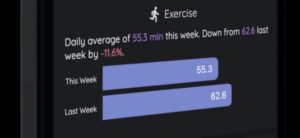The 1031 Exchange is a clause from the USA’s Internal Revenue Code, which allows you not to pay capital gain tax on any of your property. The capital gain tax is exempted when you reinvest the principle gain amount in any property or sell and buy a new property of the same amount. Under this 1031 Exchange code, you are exempted from paying property gain tax until you reinvest your real estate capital. Section 1031 Exchange permits the virtual exchange of properties having the same or almost the same value. To get ideal benefits from the section 1031 exchange, taxpayers must show clean and documented transactions overtime to get tax benefits on exchanging properties.
Is 1031 Exchange Effective?
Selling and exchanging properties under the section 1031 Exchange act is profitable and effective for your tax record. Many real estate investors and firms have benefited themselves by functioning under the 1031 Exchange. The 1031 exchange is an ideal way to fast-track the process and increases your incoming cash flow by exempting taxes. The section 1031 Exchange allows you to delay your taxpayer cycle when you sell a 1031 Exchange qualified property and reinvest that amount in another property.
It is advisable to consult with established law and real estate firms, which guides their client throughout the process. The property owner cannot live in a property that he has exchanged under 1031 Exchange rule and that his property should not be his primary property for a living. You must remember under the 1031 Exchange rule, you are exchanging the property instead of selling. The section 1031 Exchange gets you exempted from paying taxes on due capital gains.
When to Pay Tax on Capital Gain?
The property owner or the seller would only have to pay tax when selling his property rather than exchanging it under section 1031 Exchange. The capital gain value would be liable to pay when the property is sold under a taxable transaction. Any matter or liquid cash which was acquired while selling or exchanging property is duly taxable. Usually, the long-term capital gain tax is due to acquired properties for more than a year. While exchanging any property under the section 1031 Exchange, you must remember that the exchange is only applicable to the properties which are alike and have an equal value.
Till How Many Years You Are Required to Hold a 1031 Exchanged Property?
Under the section 1031 Exchange act, you must hold the exchanged property for at least five years under your name. After the completion of five years, it is up to you whether you sell the property under a tax payable transaction or make another exchange with another property having the same market value. You can always exchange properties under the section 1031 Exchange act and avoid paying the due tax on your property gain value. Any property acquired for a productive gain in business or trade can be used as an Exchange under section 1031 Exchange.









